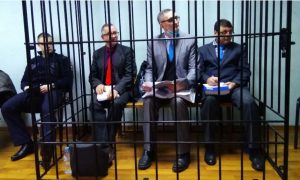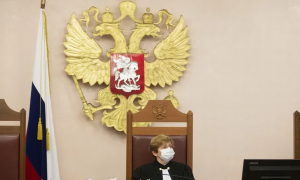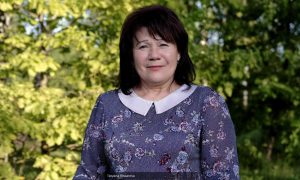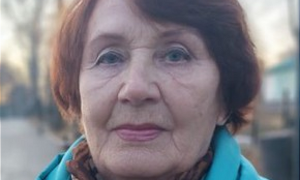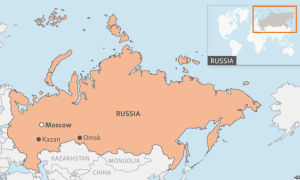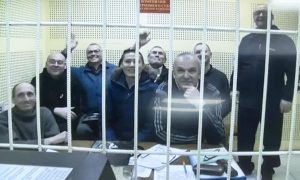The European Union has denounced a Russian Supreme Court decision to brand the Jehovah’s Witnesses an extremist organization and ban its activities.
EU foreign affairs chief Federica Mogherini’s office said on April 21 that the ruling “could make it possible to launch criminal prosecutions against Jehovah’s Witnesses for mere acts of worship.”
“Jehovah’s Witnesses, like all other religious groups, must be able to peacefully enjoy freedom of assembly without interference, as guaranteed by the constitution of the Russian Federation, as well as by Russia’s international commitments and international human rights standards,” it said in a statement.
New York-based Human Rights Watch (HRW) said the court’s April 20 decision was “a terrible blow to freedom of religion and association in Russia.”
The Jehovah’s Witnesses denomination in Russia, which says it has 170,000 adherents and 395 local branches in the country, said it would fight the ruling.
 Â
Â
Russia’s Supreme Court decision, issued April 20 in response to an appeal by the Justice Ministry, is the first time that an entire registered religious organization has been prohibited under Russian law.
The ruling specifically concerned the organization’s administrative headquarters in St. Petersburg, but it will affect its operations nationwide. The court also ordered the group’s property seized.
“We will appeal this decision, and we hope that our legal rights and protections as a peaceful religious group will be fully restored as soon as possible,†Yaroslav Sivulsky, a spokesman for the group’s Russia organization, said in an e-mail.
Long viewed with suspicion in Russia for their positions on military service, voting, and government authority in general, the Jehovah’s Witnesses is one of several denominations that have come under increasing pressure in recent years.
Russian authorities have put several of the group’s publications on a list of banned extremist literature, and a court battle is ongoing over the organization’s Russian translation of the Bible.
A measure known as Yarovaya’s Law that went into effect last year tightens restrictions on the activities of some religious groups, particularly smaller denominations like the Jehovah’s Witnesses, the Mormons, Pentecostals, and other evangelical groups.
Russian authorities have said the law, which was backed by the Russian Orthodox Church, is aimed at helping to fight religious extremism and terrorism. But the vagueness of some aspects of the law have been criticized as an open-ended tool that authorities can use to squeeze independent organizations, religious or otherwise.
“The treatment of the Jehovah’s Witnesses reflects the Russian government’s tendency to view all independent religious activity as a threat to its control and the country’s political stability,” the U.S. Commission on International Religious Freedom said in a statement earlier this month.
“This approach dates back to the Soviet period and impacts other religious groups, including peaceful Christians and Muslims,” said the commission, a federal government body that monitors religious expression around the world.
Since the Soviet breakup 26 years ago, Russia’s main religious faiths have flourished, with the largest denomination, the Russian Orthodox Church, now awash in money and believers. A law passed in 1997 officially named Orthodox Christianity, along with Islam, Judaism, and Buddhism, as the country’s four “traditional” faiths.
Other major Christian denominations like the Roman Catholic Church have also been allowed to operate openly and largely without restrictions. But denominations with a smaller presence have long been viewed with hostility from state officials and religious authorities.
Even before Yarovaya’s Law, smaller religious groups complained that the registration and administrative procedures set up under the 1997 law were onerous and expensive to comply with.
The Church of Jesus Christ of Latter-Day Saints, the Utah-headquartered denomination known widely as the Mormons, issued a statement in July say the law would have an impact on missionary work in the country.
More formally known as the Watch Tower Bible and Tract Society, the Jehovah’s Witnesses was founded in 1872 in the United States, but has had a presence in Russia going back decades, even during the Soviet rule when atheism was official policy.
Jehovah’s Witnesses have faced problems in other former Soviet republics as well. Earlier this month, a 60-year-old man went on trial in the capital of Kazakhstan, accused by the country’s main security agency of propagating ideas that “disrupt interreligious and interethnic concord.â€
The man faces up to 10 years in prison if convicted.Â
https://www.rferl.org/a/russia-deems-jehovahs-witnesses-extremist/28442809.htmlÂ
